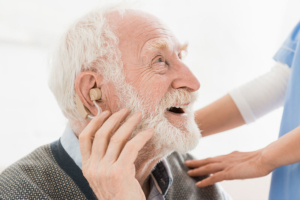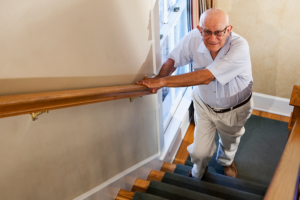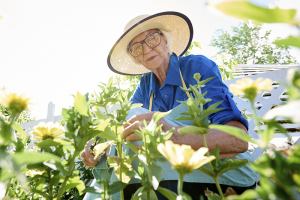Important Questions When Visiting Parents Over The Holidays

Keep these questions in mind when visiting parents over the holiday season.
It’s been a while since you’ve been able to spend time with Mom. Now that the holiday season is here, you will have some quality time to catch up. Of course, you’ll want to make the most of this time with each other, but it’s also the perfect time to assess how she is really doing, and if there are any changes in her health that may have gone unnoticed through phone conversations and FaceTime.
To help you determine areas of possible concern to assess while visiting seniors in your family this year, we’ve put together a list of questions to answer when visiting seniors in your family this holiday season. Some of these questions you may wish to ask the senior outright, while others can be answered by evaluating the home environment and the person himself.
Financial/Elder Abuse
- Has she provided anyone with personal information over the phone or internet?
- Does the senior seem more timid or anxious than usual?
- Has she cosigned for a loan for anyone?
- Does she suddenly have a new “friendship” with someone whose motives may be questionable?
- Is she communicating with strangers online?
- Are there any changes in her banking activity?
Physical/Mental Health
- Is she eating more or less than usual?
- Is she actively engaged in enjoyable activities?
- Do you notice any bruises or other injuries that could indicate a fall?
- Is she having trouble falling or staying asleep?
- Is she spending time with friends?
- Has she gained or lost weight?
- Does she seem happy and content?
- Does she seem short of breath?
- Does the senior seem to be moving more slowly and cautiously?
- Is she stumbling or holding onto furniture or the wall to get around?
Home Maintenance
- Is there clutter in the home that could pose a fall risk?
- Are the bed linens being changed regularly?
- Is the laundry clean and put away?
- Are there any hazards you’re noticing, such as scorch marks on pans or the countertop that could indicate inattention to cooking?
- Is the home cleaned to the senior’s typical standards?
- Is the yard maintained?
Cognitive Functioning
- Is she struggling to remember the names of familiar people or objects?
- Is she misplacing items, only to find them in unexpected places, such as the car keys in the refrigerator?
- Does the senior seem more forgetful or confused than usual?
- Is she repeating questions or statements in conversations?
- Are there pieces of mail and bills that have not been opened?
- Are you noticing any unusual behaviors?
If you are in any way concerned about the safety or wellbeing of any loved ones while you’re visiting seniors in your family this year, professional home care services can help. Reach out to Responsive Home Care, the top home health agency in Hollywood, FL and the nearby areas, for more information.





